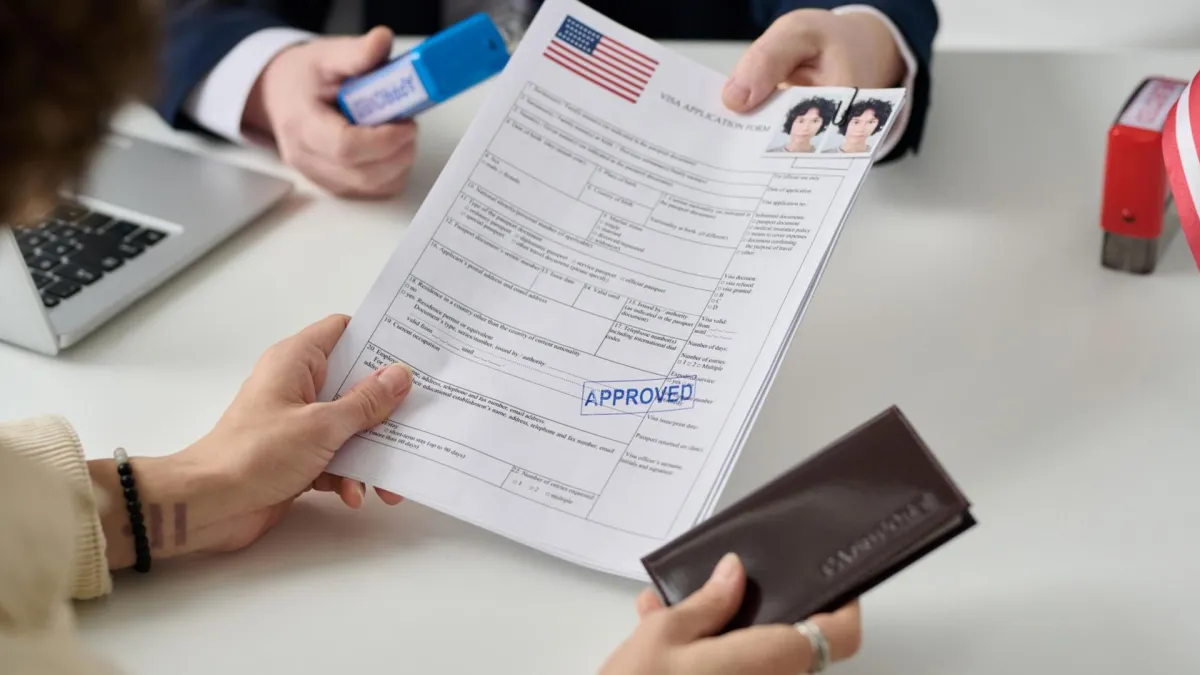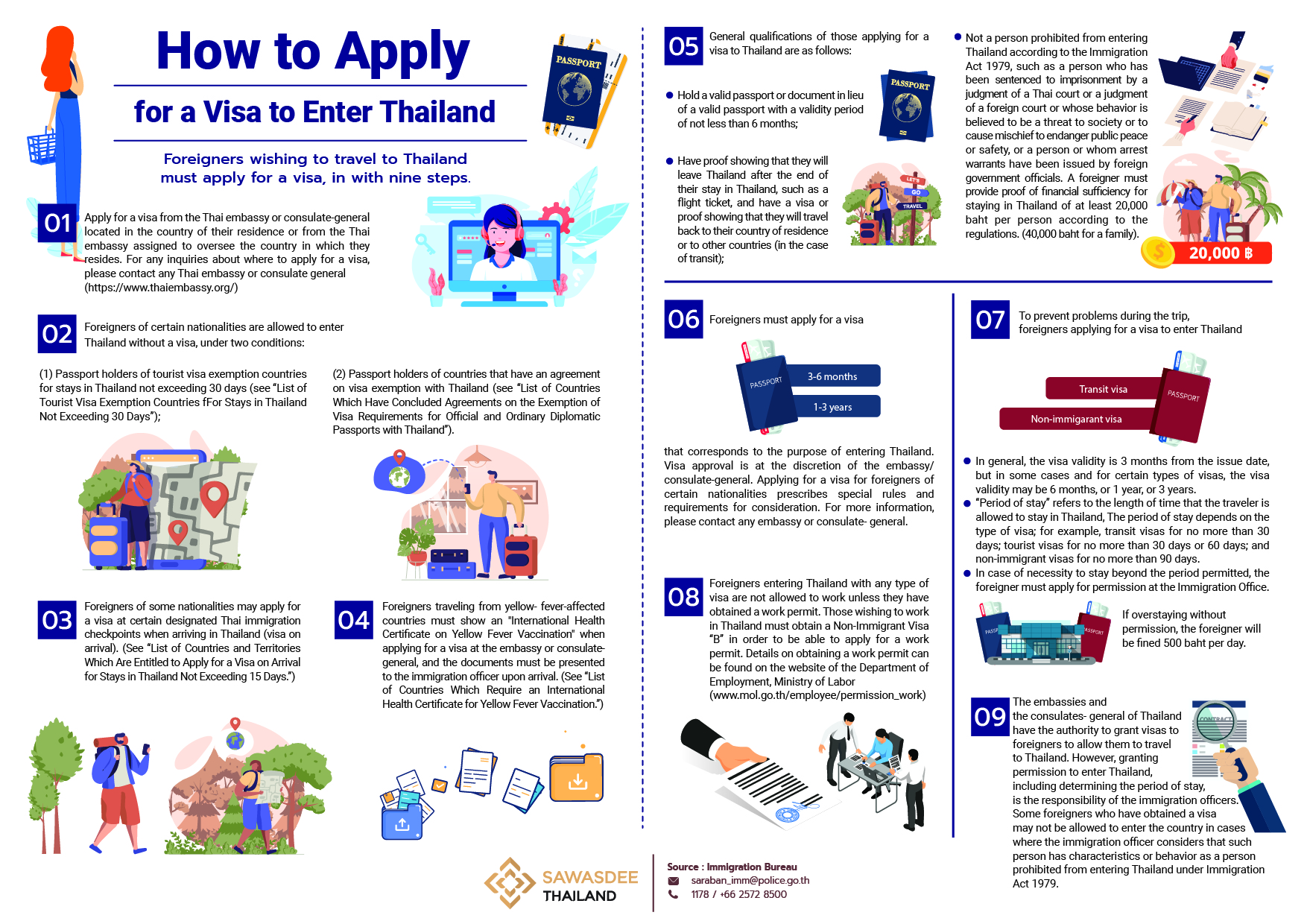
Foreigners wishing to travel to Thailand must apply for a visa. This article describes nine considerations that bear on the application.
1. Apply for a visa from the Thai embassy or consulate-general located in the country of their residence or from the Thai embassy assigned to oversee the country in which the foreigner resides. For any inquiries about where to apply for a visa, please contact any Thai embassy or consulate general (https://www.thaiembassy.org/).
2. Foreigners of certain nationalities are allowed to enter Thailand without a visa if the two conditions specified are met as follows:
(1) Passport holders of tourist visa exemption countries for stays in Thailand not exceeding 30 days: See the details on “List of Tourist Visa Exemption Countries For Stays in Thailand Not Exceeding 30 Days”;
(2) Passport holders of countries that have an agreement on visa exemption with Thailand: See the details on the “List of Countries Which Have Concluded Agreements on the Exemption of Visa Requirements for Official and Ordinary Diplomatic Passports with Thailand.”
3. Foreigners of some nationalities may apply for a visa at certain designated Thai immigration checkpoints when arriving in Thailand (“visa on arrival”). See details on the “List of Countries and Territories Which Are Entitled to Apply for a Visa on Arrival for Stays in Thailand not Exceeding 15 Days,”
4. Foreigners traveling from yellow-fever-affected countries must show an "International Health Certificate on Yellow Fever Vaccination" when applying for a visa at the embassy or consulate general, and the documents must be presented to the immigration officer upon arrival in Thailand, before they will be allowed to enter the country. See details on the “List of Countries Which Require an International Health Certificate for Yellow Fever Vaccination.”
5. General qualifications of those applying for a visa to Thailand are as follows:
6. Foreigners must apply for a visa that corresponds to the purpose of entering Thailand. Visa approval is at the discretion of the embassy or consulate-general. For foreigners of certain nationalities, special rules and requirements for consideration apply. For more information, please contact any embassy or consulate-general.
7. To prevent problems during the trip, foreigners applying for a visa to enter Thailand should be aware of visa validity and the period of stay. The visa validity refers to the length of time a visa grantee is allowed to travel to Thailand, which is determined by the consular officer and appears on the visa sticker or visa stamp of the embassy or consulate-general. In general, the visa validity is 3 months from the issue date, but in some cases and for certain types of visas, the visa validity may be 6 months or 1 year, or 3 years. Period of stay refers to the length of time that the traveler is allowed to stay in Thailand, which is determined by the consular officer upon the foreigner's arrival and appears on the arrival stamp. The period of stay depends on the type of visa; for example, transit visas for no more than 30 days; tourist visas for no more than 30 days or 60 days; and non-immigrant visas for no more than 90 days. In case of necessity to stay beyond the period permitted, the foreigner must apply for permission at the Immigration Office. If overstaying, such foreigner will be fined 500 baht per day.
8. Foreigners entering Thailand with any type of visa are not allowed to work unless they have obtained a work permit. Those wishing to work in Thailand must obtain a Non-Immigrant Visa “B” in order to be able to apply for a work permit. Details on obtaining a work permit can be found on the website of the Department of Employment, Ministry of Labor (https://www.mol.go.th/employee/permission_work)
9. The Embassy and the Consulates General of Thailand have the authority to grant visas to foreigners to allow them to travel to Thailand. However, granting permission to enter Thailand, including determining the period of stay, is the responsibility of the immigration officers. Some foreigners who have obtained a visa may not be allowed to enter the country in cases where the immigration officer considers that such person has characteristics or behavior as a person prohibited from entering Thailand under Immigration Act 1979.
